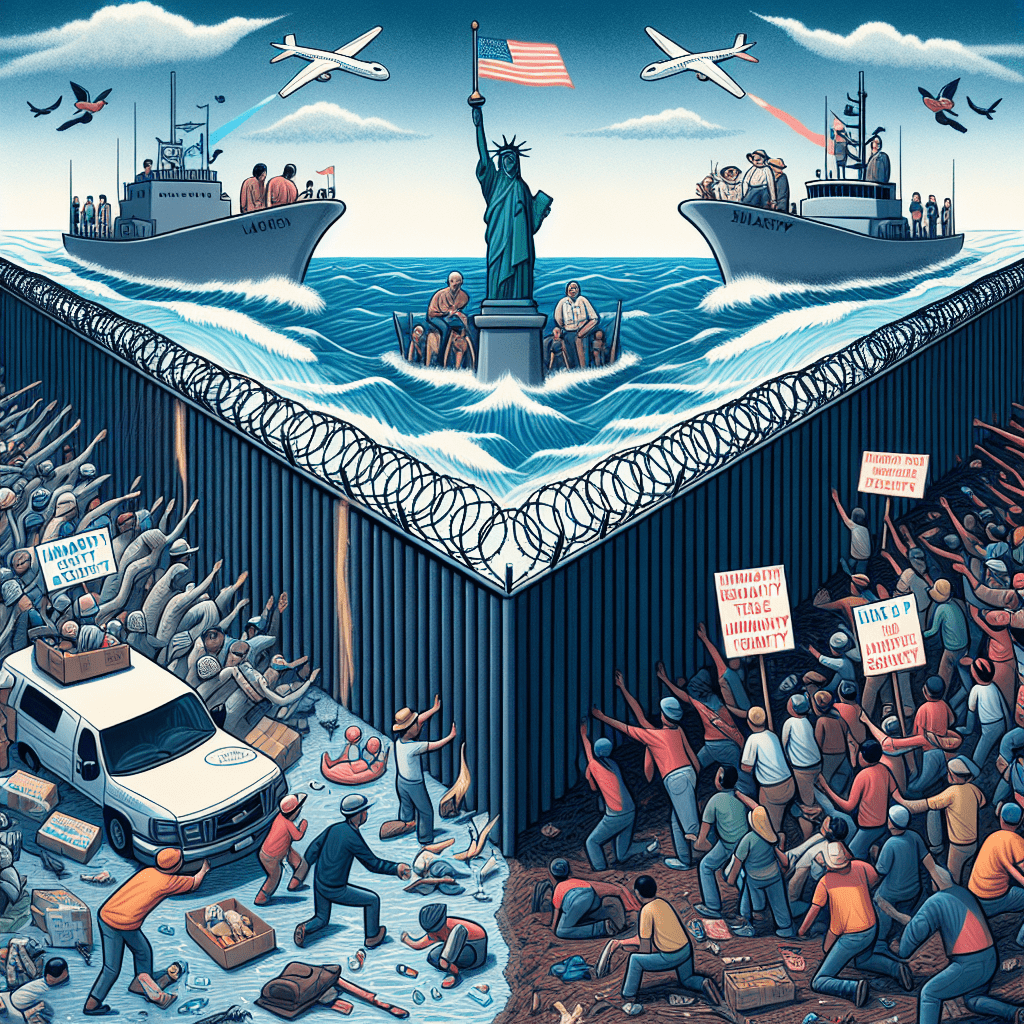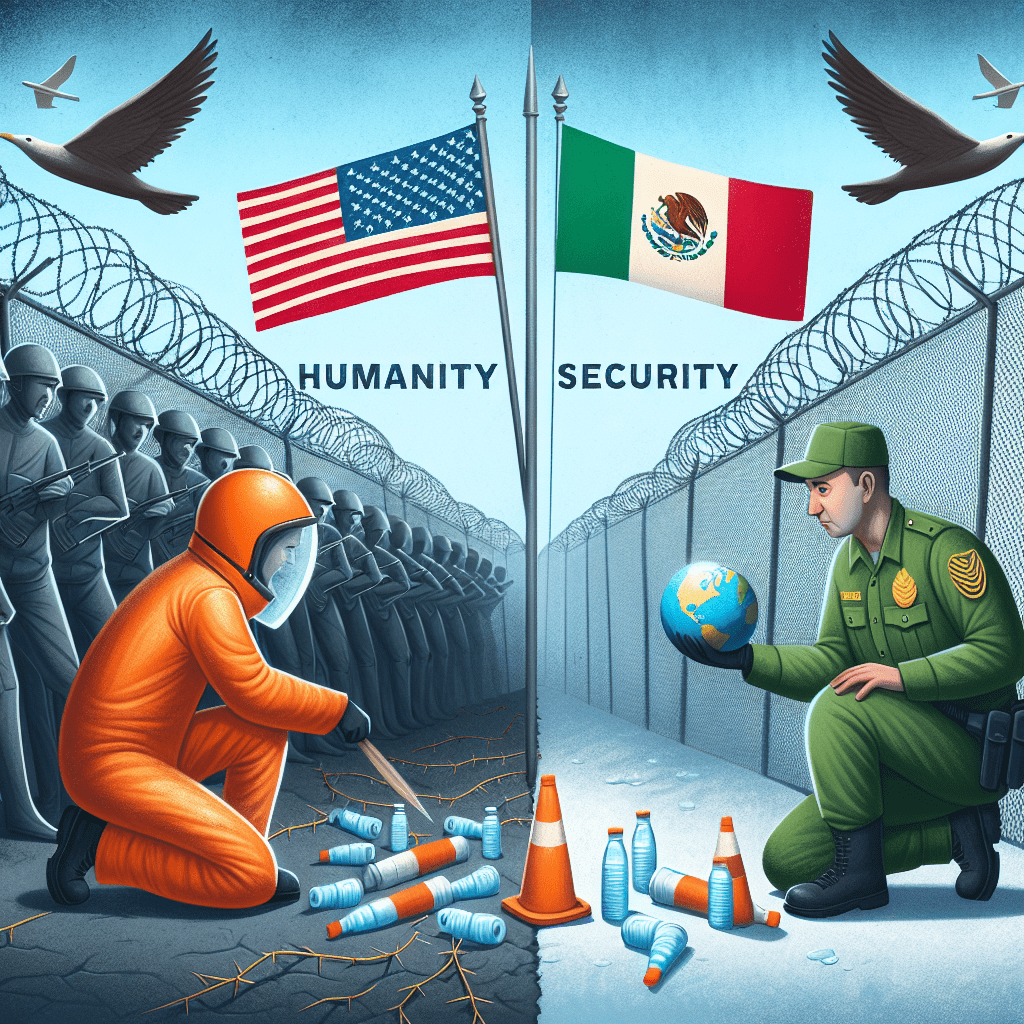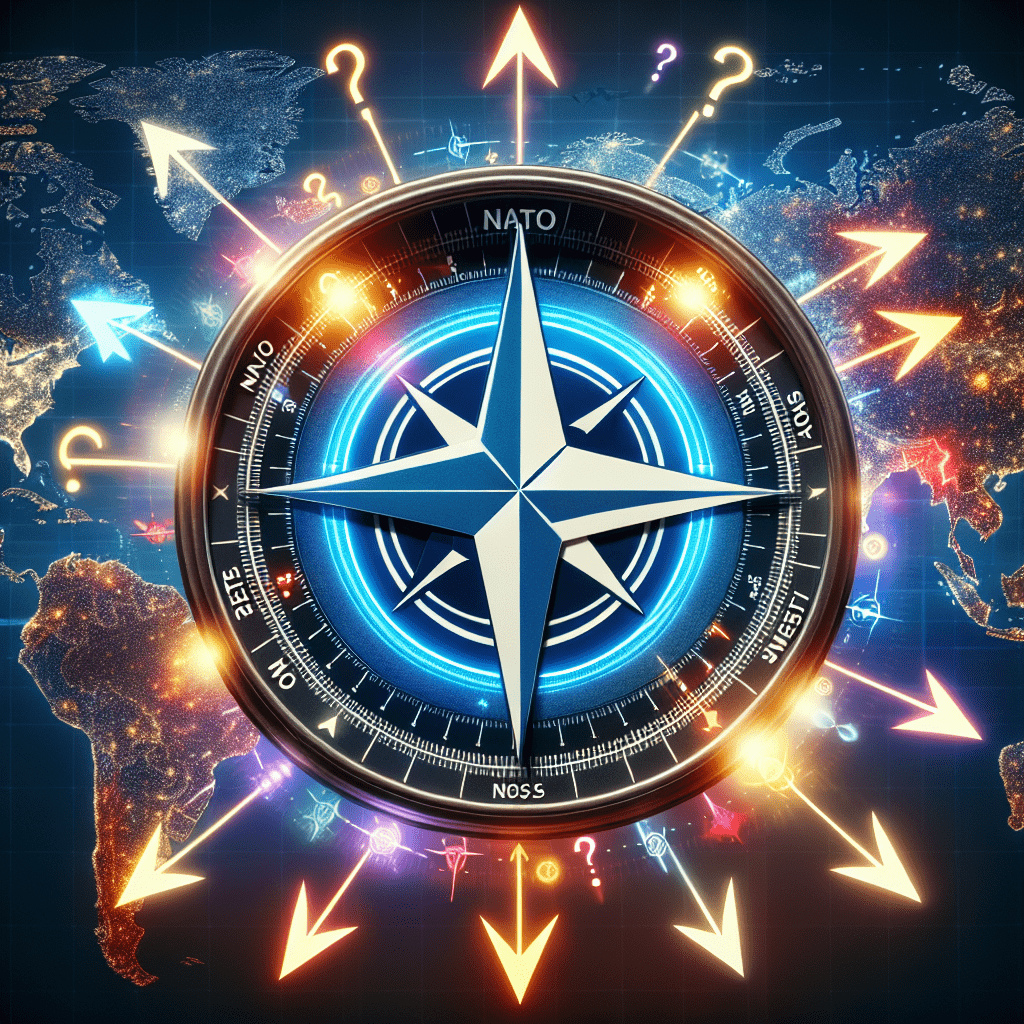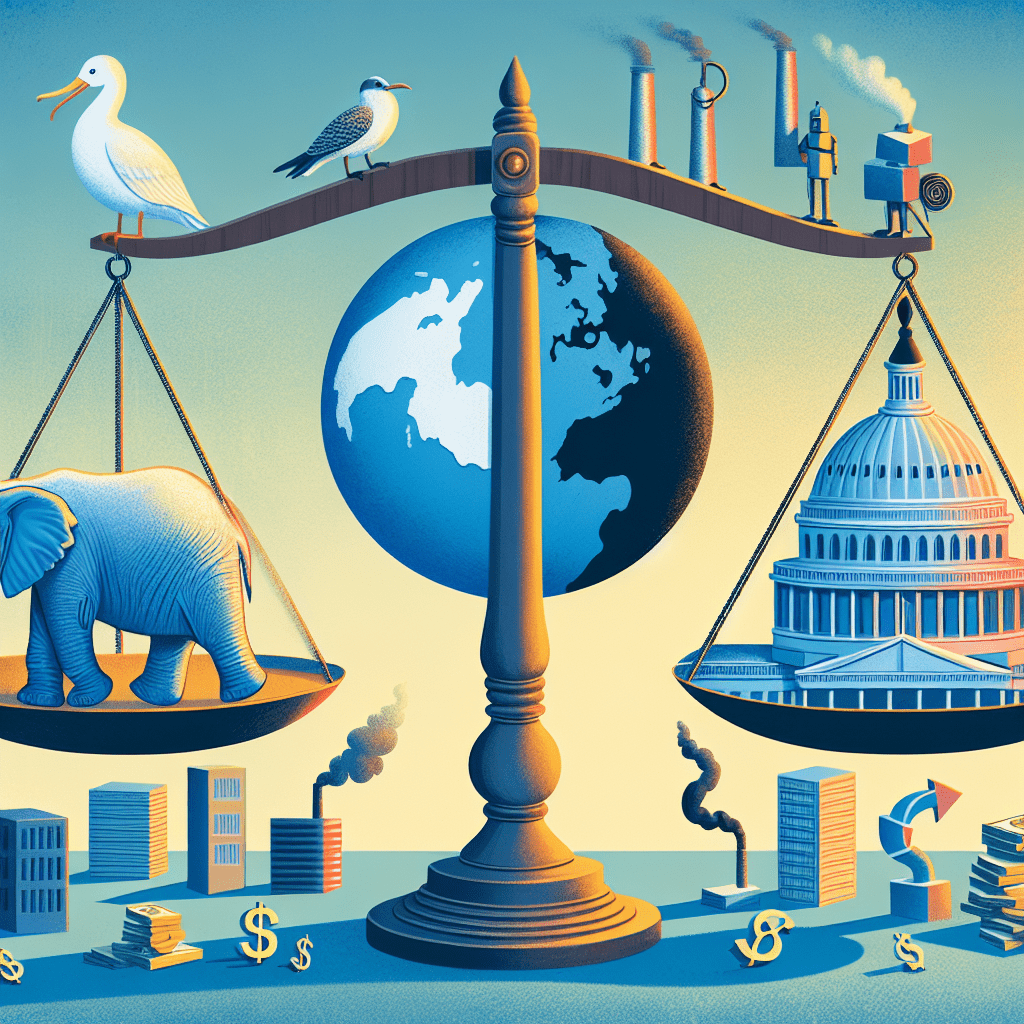Immigration is a hotly debated issue in the political context that needs to be considered on both a national and international level. It tests the balance between humanity and national security by forcing national governments to set their priorities and determine how they manage their borders and who has access to their countries. The challenge is to find a balanced immigration policy that both creates a safe environment for a country’s citizens by ensuring national security and takes into account the humanitarian aspect by providing protection and support for immigrants.
You will be guided through the complex facets of immigration policy on this thematic journey. The discussion will help you explore the different aspects and the dynamic tensions between humanitarianism and national security and shed light on the role of global actors in the immigration debate. Finally, we will look for possible solutions to achieve a fair balance between the two poles.
1 Definitions of terms: Humanity and national security
Before we get into the topic, it is important to define the two main terms: Humanity and National Security.
Let’s start with humanity. This term comes from the Latin “humanitas”, which means the quality of being human. In politics, humanity refers to the respect and protection of basic human rights, which are granted to all individuals regardless of their race, gender, religion or nationality.
Next comes national security. This is a concept that prioritizes the protection of a country from threats against its people and its prosperity. This can refer to physical threats such as terrorism and war, but also to less tangible threats such as economic and political destabilization.
In the debate on immigration policy, these two concepts are often in conflict. On the one hand, there is the humanitarian responsibility to help people in need while respecting their rights. On the other hand, there is the need to maintain and promote the security and stability of one’s own nation. The balancing act between these two priorities is at the heart of the controversy surrounding immigration policy.
2 Examples of humanitarian immigration policies

You may be wondering what a humanitarian immigration policy looks like. Some countries have found ways to incorporate humanitarian aspects into their immigration laws.
One example is Canada. Here, points are awarded according to certain criteria, such as language skills, education and work experience. But Canada also has a special category for refugees and asylum seekers who are seeking protection due to war, persecution or other threats in their home country. This allows for legal immigration, even for people who might not otherwise achieve the necessary points.
Sweden is another example of a humanitarian immigration policy. Since the 1970s, Sweden has had a liberal refugee policy and has taken in a large number of refugees from different parts of the world. They have a strong focus on human rights and offer extensive support and opportunities for integration into Swedish society.
However, these policies are not without challenges. The humanitarian focus of immigration policy can cause conflicts with aspects of national security, especially when immigration takes place on a large scale.
Negative effects of overly liberal immigration policies
The admission of immigrants is a complex issue and not without challenges. A liberal immigration policy allows many people to come to a new country and seek a better life. However, this can also have negative effects, not only on the migrants themselves, but also on the host countries.
One of the potential problems is the enormous strain on a country’s social systems. For example, if you immigrate to a country with a well-developed social system and end up there without a job and sufficient financial resources, you will be dependent on support. This leads to increased burdens for society and the government, which have to finance these social benefits.
Another challenge with an overly liberal immigration policy is increased crime. Even though the majority of immigrants are peaceful and just looking for a better future, there is still a small percentage that engages in criminal activity. This can affect the sense of security in the population and lead to social tensions.
Finally, an overly liberal immigration policy can also lead to people settling in a new country without really integrating. This can create cultural tensions and a feeling of “us versus them” in society, which in turn makes living together more difficult.
In short, while liberalism in immigration policy opens up opportunities for many people, it also brings challenges and problems that need to be properly addressed.
4 Social and political consequences of strict immigration policies
Strict immigration law has both social and political implications. It is important that you as an individual understand these implications in order to have an informed opinion on this key political issue.
Socially, strict immigration laws can tear families apart and expose individuals to a variety of challenges. For example, if a parent is able to live in a country because of a strict immigration law, but their child or spouse cannot, this will result in a separated family. Additionally, people who have left their home country to flee violence or persecution may have to return to an unsafe situation. This can mean emotional stress as well as physical danger.
On a political level, strict immigration laws can lead to increased tensions on an international level. Countries that have strict immigration policies can be seen as intolerant or xenophobic, which can lead to diplomatic conflict. In addition, a country’s commitment to human rights can be called into question if strict immigration laws result in asylum seekers or refugees being sent back to their home countries, even though these are dangerous for them.
It is also important to remember that strict immigration laws often lead to an increase in illegal immigration. This can lead to a number of problems, including increased crime, unregulated labor, and overcrowded housing facilities for illegal immigrants. It also makes it harder to integrate these people into society and give them access to basic services such as education and healthcare.
In summary, a strict immigration policy brings with it social and political challenges. It is not just about who is allowed to enter a country and who is not, but also about the impact on families, the international community and those already in the country.
5 Practical implementation of humanitarian and security-oriented immigration policy
The practical implementation of a humanitarian and security-oriented immigration policy is a complex problem. First of all, legal and political framework conditions play an important role. The law determines who is allowed to enter the country and who is allowed to stay. Depending on the country, practice varies from a very open to a very restrictive policy.
In a humanitarian approach, you emphasize the importance of civil rights, human rights and social justice. This means that migrants should have the same access to social services and general support as locals. They should also have the right to join their families, apply for political asylum and, where possible, integrate into society.
On the other hand, a security-oriented immigration policy can raise concerns about national security, public order and border control. Migration can be perceived as a threat or as a way to bring criminals or terrorists into the country. Therefore, identity verification procedures, border controls and asylum checks are necessary to manage these security risks.
Balancing these two positions can be a challenge. It is important to find a middle ground that respects the rights and dignity of migrants while also taking into account security concerns. It can be helpful to establish integration programs that help migrants to adapt and make a positive contribution to society. At the same time, consistent application and enforcement of immigration laws is necessary to ensure national security.
6 Role play of global actors in the immigration debate
Global actors play a crucial role in the complex discourse surrounding immigration policy. They are often the ones who determine the direction and extent of immigration policy in different countries.
International organizations such as the United Nations and the International Committee of the Red Cross play a central role in shaping and implementing immigration policy. They set standards and establish guidelines to protect the rights of migrants and ensure that the immigration policies of different countries are humanitarian and fair.
Diplomacy is another important actor. Through bilateral and multilateral talks, countries influence the immigration policies of their neighbors and partners. You can also see that many countries use their immigration policies to promote international relations and geopolitical interests.
Furthermore, NGOs and civil societies help shape the discourse on immigration policy. They advocate for migrants’ rights, organize campaigns and mobilizations and thus influence the decisions of governments and international organizations.
Finally, we should not neglect the role of the media. They shape public opinion and the perceptual framework of immigration policy. Therefore, they have a significant influence on how these policies are implemented and interpreted.
In short, the design and implementation of immigration policy is the result of a complex interplay between different global actors with different objectives, priorities and strategies.
7 Balancing humanity and security: potential solutions
There are no easy answers to the question of balancing humanity and national security in immigration policy. However, some potential solutions can be considered to address both aspects.
Firstly, states must be aware of their responsibility to protect both national security and human rights. Just because someone is an immigrant, their human dignity should not be called into question. At the same time, the security of the host country should not be neglected. The search for solutions should therefore focus on a balanced approach that takes both aspects into account.
Secondly, it is crucial that countries work together to find common solutions to migration issues. Global problems require global solutions and these can only be achieved through international cooperation. In particular, developed countries should show willingness to share responsibility and support less developed countries in their efforts to manage migration.
Specific measures such as improved border controls and security checks can also be considered to ensure national security. Efficient asylum procedures and integration programs for migrants can be helpful for the effective and humane management of immigration. In this way, a fair and inclusive approach to immigration policy can be found that respects human rights and ensures national security.
8 Conclusion: The search for a balanced immigration policy
In the complex political arena of immigration policy, we often find ourselves torn between the poles of humanity and national security. But we must not forget that a balanced stance must take both aspects into account. A stance that emphasizes only one side of the spectrum tends to either disregard the principles of humanity or overlook the need for adequate national security.
You must consider that tightly controlled borders do not necessarily mean that they are inhumane, nor does a more liberal policy automatically mean that national security is compromised. It is the task of politicians and society to find a balance between these two aspects.
It is crucial to find ways to ensure fair and humanitarian treatment of migrants without jeopardizing the security of citizens. It is equally important to take inclusive measures to involve both migrants and locals in living together in harmony.
Balanced immigration policy requires patience, thoughtfulness and a willingness to engage in dialog. It must go beyond mere political points to promote a deeper understanding of the roots of migration and security and in this way create effective and empathetic policies. It is not an easy undertaking, but it is a necessary task for a just and peaceful society.





